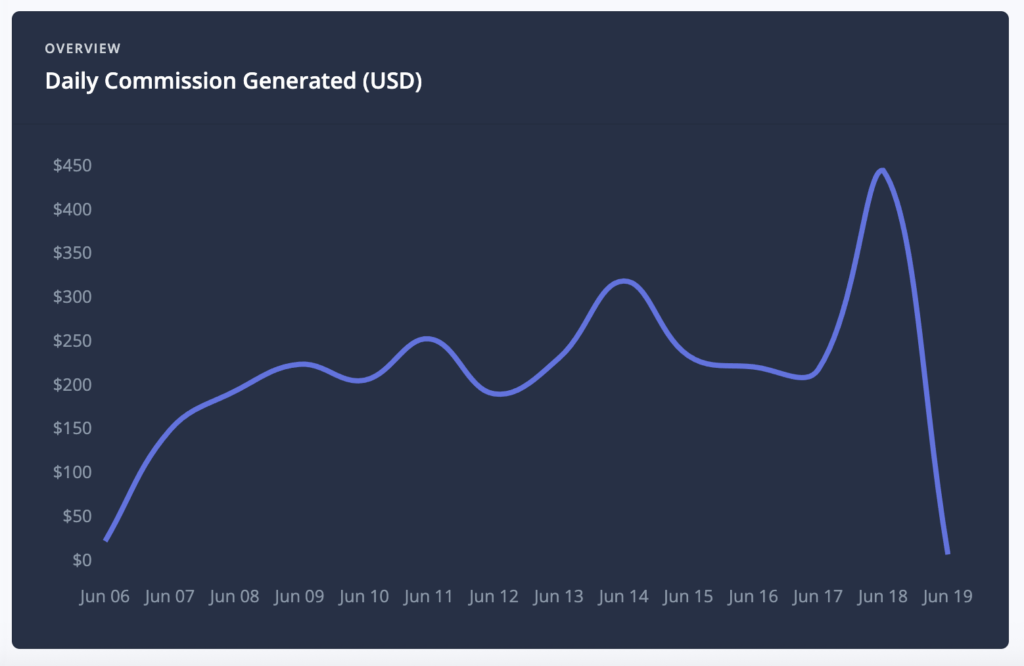
There two ways to answer “what is SEO affiliate marketing?”
First, it could be defined as affiliate programs for SEO-oriented products, software and services.
Or…
Second, it could be referring to promoting content to website traffic arriving via search engines.
In my view, when people ask that question, they’re asking about how to do affiliate marketing with SEO. Or more basic yet, are wondering how SEO fits in or relates to affiliate marketing.
How does SEO relate to affiliate marketing?
A great deal of affiliate marketing includes SEO. The concept is this.
- A website publishes content that discusses, reviews, compares or mentions a product or products. The content should ideally pre-sell the product(s).
- Those products are sold by a third party merchant.
- That third party merchant has an affiliate program.
- The affiliate website uses an affiliate link pointing to the page where the product is sold.
- The affiliate website deploys on-site and off-site SEO measures to rank for various search phrases.
- Once the affiliate website ranks on page one of search engines, visitors arrive to the site.
- Those visitors read the content. Those that click an affiliate link and buy the product or products, earns the affiliate website owner a commission.
That is basic SEO affiliate marketing. It’s promoting products on a site and getting traffic to that site from search engines.
However, it could be taken one step further to incorporate more advanced methods to pre-sell.
Other techniques for SEO affiliate marketing
In addition to simply placing affiliate links on a website hoping for clicks and purchases from search engine traffic, affiliate websites can incorporate additional methods for securing clicks on affiliate links.
Some proven methods include:
Coupons:
Coupons or coupon codes are an excellent way to secure an affiliate click and subsequent purchase. Everyone loves to save and if they can save money with a coupon code, they’ll be more likely to click and buy.
Comparisons:
The more information about products a site offers, the more value it offers visitors which can garner more clicks on affiliate links and secure the sale. Comparisons can be simple text articles such as comparing two products. Or it could be more involved with extensive product line comparison tables.
Quizzes:
Quizzes are one of my favorite tools for not only getting clicks on affiliate links, but pre-selling products. Quizzes function as follows.
The affiliate website creates a short 5 to 10 question outcome quiz where the answers steer the quiz taker toward a specific product recommendation based on those answers. It’s very effective at converting referrals via affiliate links into a sale because there’s a certain level of customization involved.
Image links:
Website visitors click images all the time. Often affiliate marketing is a numbers game which means the more affiliate clicks you get the more sales and commissions you’ll earn. By having product images link to the product sales pages with an affiliate link, you increase the chances of getting more clicks on your affiliate links.
Email newsletter:
Instead of the affiliate website intending to have website visitors click an affiliate link on the site, the site seeks to have visitors join an email mailing list.
The affiliate website owner can then email those subscribers messages that include affiliate links
SEO is merely a traffic source
Affiliate marketing requires clicks on affiliate links, whether directly on a site, blog, in a quiz or in an email message.
In order to get those clicks, the affiliate marketer needs traffic.
SEO is merely a traffic source. It’s not the only traffic source, mind you. It’s one of several. Others include paid advertising traffic, Pinterest traffic, YouTube traffic and direct traffic.
That said, in my experience, SEO traffic is an excellent traffic source because it’s search intent based and passive (as in it keeps on coming as long as the content ranks in the search engines).
Any affiliate marketing aimed toward traffic from search engines is SEO affiliate marketing.
How do you do SEO?
Well, that is one weighty topic. Books and websites are devoted to it.
A good starting point is to publish excellent content that helps visitors. However, good content is just the start.
There are many technical steps you must take to properly optimize your content for search engines. This is merely taking measures with your digital content so that search engines understand what it is about.
But there’s even more. There’s targeting the right search phrases. For example, if the product you promote is a trampoline, you won’t earn any commissions if you write and article about watermelons. A watermelon article that attracts search engine visitors seeking information about watermelons will not successfully promote trampolines.
Instead, an article about the health benefits of trampolines will sell trampolines. Better yet, a page dedicated to comparing certain types of trampolines will probably sell more trampolines per 1,000 visitors. And then if you manage to rank a web page for “Best Trampoline” you’ll likely sell a ton of trampolines. But in order to rank in the search engines for a term such as “best trampoline” you will need to bring your A-game with respect to SEO.
The more money a keyword or search phrase can potentially earn, the more competitive it is unless you dig up some really great keywords using keyword research.
The more competition you face to rank for a specific keyword, the harder and more unlikely it is you’ll rank for that keyword unless you know what you’re doing. It’s not impossible, but it takes time, know-how and either a lot of work or a lot of money.
Assuming your content is excellent and you actually know what you’re talking about, ranking competitive content requires what’s called off-site promotion. This can include social media promotion, but more importantly promotion that results in other sites linking to you.
The reason links from other sites is important is because most search engines, including Google (the #1 search engine) base search engine rankings on the number and quality of links to the content. There are many other factors in ranking content, but links are one of the most important. Moreover, if you know how build links, that is one factor that is in your control.
The problem is that it’s not easy getting other websites to link to content that’s blatantly commercial such as “best trampoline” types of articles.
This means you need to build links however you can. This can be via guest posting, paid links, via other sites you own (i.e. private blog network) and link trades. There are other methods, but these are the most common proactive link building methods. Building these types of links require time and/or money.
SEO is a mega industry
If you’re new to blogging or publishing websites, you should know that SEO is a mammoth industry because the potential profits are astonishing. Fortune 500 companies invest hundreds of thousands of dollars into SEO. The amount of quality traffic search engines refer to websites is so vast that many website publishers and online stores take SEO very, very seriously. This means it’s competitive and by its nature, is a zero-sum game. Only one website can be ranked in the top spot. It’s kill or be killed. Sure, spots two through five can send you good traffic, but spot #1 in the search engines is the be all and end all. That’s the goal.
SEO shouldn’t be ignored
While there are many other traffic sources, in my view every website publisher should optimize some (or all) content for search engines. Even if search engine traffic isn’t the focus or priority, because it’s intent-based traffic, ignoring SEO is leaving money on the table… even if it’s only doing basic keyword research and the basic on-site optimization. This alone can result in free traffic that earns revenue.
Take this blog (MyPerfectBlog.com) as an example. I don’t do too much keyword research, although ironically I did for this post. I usually publish content that I think my audience will find helpful. However, I’m well-enough versed in this niche that I have a general idea as to the keywords to target, so even here I don’t ignore SEO. In fact, the lion’s share of traffic to this website is via search engines (i.e. Google).
How to grow your SEO affiliate marketing income?
There are three ways to continually increase your affiliate marketing income. They are:
- More search engine traffic;
- Generate more sales with existing traffic; and/or
- Both (the best way to increase your affiliate income via SEO).
When something works, scale it up
When you manage to get something to work and that earns you money, drop everything and analyze precisely what it is about that piece of content that is ranking and/or converting visitors into referrals earning you commissions.
You need to assess the following:
- keywords you target (can you replicate the keyword concept)?
- keyword ranking difficulty
- did you attract links naturally and/or did you build links? If no links were built, what is it about that piece of content that was able to rank in Google search?
- where are your affiliate links? What is it about the text of those links that get clicks? Or, are they buttons? Image links?
- can the content format and topic concept be replicated to promote other products? For example, was it a review or comparison or an informational piece?
- how well do the products convert? Are you getting 1 sale for every 1,000 visitors your refer or 50 sales for every 1,000 visitors?
Essentially, you want to figure out exactly what it is about that piece of content that makes it a success and then figure out how you can replicate that success without publishing duplicate content.

Jon Dykstra is a six figure niche site creator with 10+ years of experience. His willingness to openly share his wins and losses in the email newsletter he publishes has made him a go-to source of guidance and motivation for many. His popular “Niche site profits” course has helped thousands follow his footsteps in creating simple niche sites that earn big.





